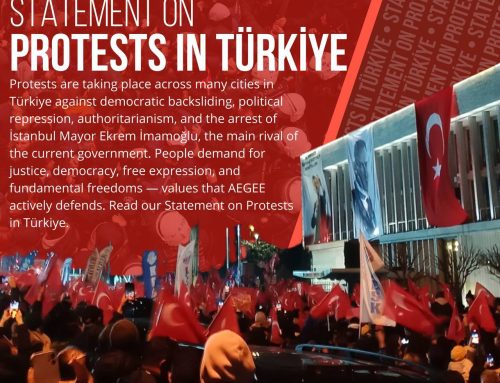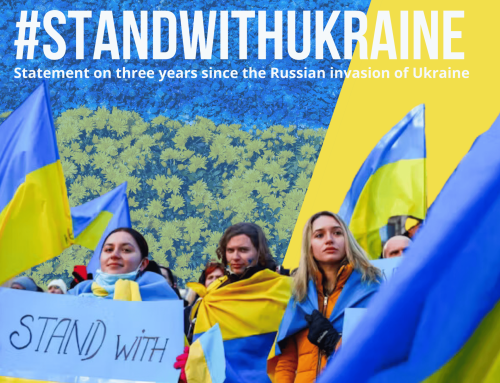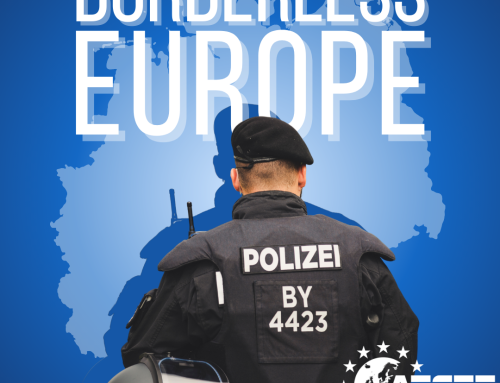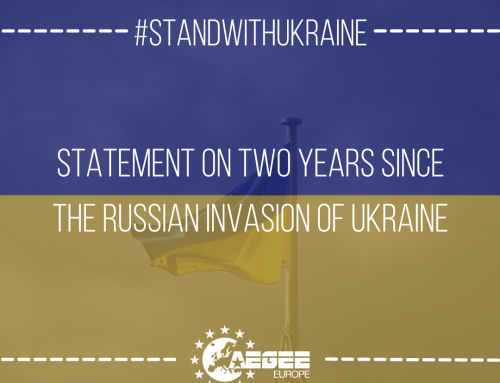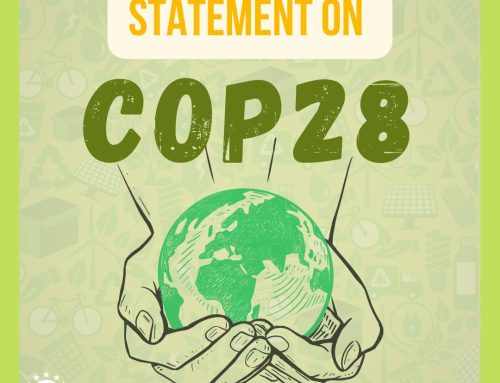Statement on the Planned Presidential Elections on behalf of AEGEE-Gdansk, AEGEE-Krakow, AEGEE-Warszawa and AEGEE-Wroclaw
Democracy is at the heart of the AEGEE European Student Forum’s activity. Through our actions, both at the local and international level, we try to shape conscious citizenship attitudes among young people, hence, in the sense of social responsibility, we cannot fail to express our opposition to the situation that is currently taking place in Poland. We observe with deep concern all the steps that are being taken related to the upcoming presidential election. These steps, in the face of the developing pandemic, raise very big doubts also among us.
In Poland, the Constitution is the most important of the binding legal acts determining the rules of conduct. There is no question that the process of introducing changes in electoral law is inconsistent with both the Constitution and the current Electoral Code. During the enactment of the amendments, the principle of three readings was clearly violated (Article 119. 1, the Constitution) and the principle that forbids the introduction of any amendments regarding the electoral process in less than six months before the planned elections (Judgment of the Constitutional Tribunal of 20 July 2011 K 9/11). What raises the biggest doubts, however, is the content of the introduced changes. In the opinion of many legal authorities, as well as institutions such as the OSCE or the Ombudsman, the adopted law does not guarantee the preservation of the most important electoral principles resulting from the Constitution: universality, freedom and equality of elections. The ongoing state of the pandemic for several weeks also prevents effective electoral campaigns. This means that candidates do not have equal opportunities in presenting their programmes, which means that voters cannot make a fair and conscious decision.
The controversy arises from the Sejm’s process of holding the presidential election through full correspondence voting. Experts question whether the proposed procedures are able to guarantee the possibility of voting for any person who wishes to do so, especially in the current situation. The objections relate to many issues: the delivery of ballots, people in quarantine, voting while being abroad or the movement of people living outside their place of residence, such as students. What is more, the credibility of the electoral process is also called into question, as it requires full objectivity and neutrality of the people and institutions that supervise it. For the first time in history, the governmental minister steering the activities of the Polish public post service (Poczta Polska) will be heavily involved in the direct organization of elections, which will significantly affect the scope of competence of an independent National Electoral Commission (PKW) and may create fields for abuse. Citing the PKW’s position “[…] in a democratic state, elections are not only voting, but they are also a complicated mechanism, in which both voters, candidates and public administration bodies organizing the election process participate. This process, due to its importance and complexity, must be based on clear and unambiguous norms derived directly from the Constitution”.
Regardless of the elections’ form, holding them in May this year may lead to a significant increase in SARS-CoV-2 infections, and thus put in danger the health and lives of millions of Poles. The authorities such as the Supreme Medical Chamber or the Polish Academy of Sciences agree on this matter. Thousands of people are involved in the organization of elections – officials, members of election commissions, or, in the case of correspondence voting, also employees of Polish public post service. Unquestionably, this will result in increased interpersonal contact and increased mobility of the abovementioned people, which, with the insufficient amount of basic personal protection measures, may contribute to a faster spread of the virus. The consequence of such a situation will be an unnecessary threat to human life.
There are many indications that in the coming months, or even years, we will face a very difficult time – a time to fight the pandemic, a time to change the way we know how society functions, a time to rebuild the economy. These are the challenges that need to be solved by a government that enjoys the trust of society. Bodies appointed in elections whose legality is questioned may lose their legitimacy, authority and universal recognition. Citizens should never be faced with a choice between caring for their health and concern for the future of their country. The results of elections carried out in times of social unrest already raise doubts about the legality and cannot become the basis for initiating the strong social cooperation that we need so much in the coming period. We believe that in a situation of such a deep threat, those in power should focus on protecting the life and health of citizens and saving the national economy, and not on striving to hold elections as quickly as possible with such great constitutional and legal doubts.


